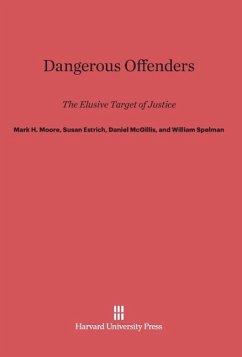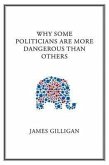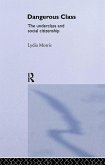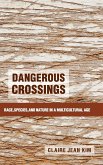Americans rank crime among the most urgent of social concerns. Overflowing prisons and public outcry have led many to propose that the criminal justice system could control crime more effectively by focusing on dangerous offenders.
Recent social studies have suggested that serious criminality is highly concentrated and that high-rate offenders can be distinguished from others on the basis of prior criminal conduct, drug abuse, and employment record. Such studies urge judges to shift from rehabilitative sentencing to selective incapacitation, with longer prison sentences for convicted criminals who are deemed unusually dangerous. In response to these recommendations, some prosecutors' offices have established career criminal units designed to assure that repeat offenders will be prosecuted to the full measure of the law. Some police departments are experimenting with "perpetrator-oriented patrols" targeted on suspected high-rate offenders.
The authors of this major book in criminal jurisprudence describe and analyze the intellectual and social challenge posed to public officials by this new thrust in criminal justice policy. They develop a framework for evaluating policies that focus on dangerous offenders. They first examine the general issues that arise as society considers the benefits and risks of concentrating on a particular category of criminals. They then outline how that approach might work at each stage of the criminal justice system--sentencing, pretrial detention, prosecution, and investigation.
This cogently argued book provides much needed guidance on the crucial questions of whether sharpened attention to dangerous offenders is just, whether such a policy can be effective in managing the problem of crime, which applications seem particularly valuable, what the long-term risks to social institutions are, and what uncertainties must be monitored and resolved as the policy evolves.
Recent social studies have suggested that serious criminality is highly concentrated and that high-rate offenders can be distinguished from others on the basis of prior criminal conduct, drug abuse, and employment record. Such studies urge judges to shift from rehabilitative sentencing to selective incapacitation, with longer prison sentences for convicted criminals who are deemed unusually dangerous. In response to these recommendations, some prosecutors' offices have established career criminal units designed to assure that repeat offenders will be prosecuted to the full measure of the law. Some police departments are experimenting with "perpetrator-oriented patrols" targeted on suspected high-rate offenders.
The authors of this major book in criminal jurisprudence describe and analyze the intellectual and social challenge posed to public officials by this new thrust in criminal justice policy. They develop a framework for evaluating policies that focus on dangerous offenders. They first examine the general issues that arise as society considers the benefits and risks of concentrating on a particular category of criminals. They then outline how that approach might work at each stage of the criminal justice system--sentencing, pretrial detention, prosecution, and investigation.
This cogently argued book provides much needed guidance on the crucial questions of whether sharpened attention to dangerous offenders is just, whether such a policy can be effective in managing the problem of crime, which applications seem particularly valuable, what the long-term risks to social institutions are, and what uncertainties must be monitored and resolved as the policy evolves.
Moore and his colleagues make an excellent case that the dangerous offender is worth pursuing. Along the way they provide an insightful portrait of the intricacies of the criminal justice system and the role of empirical research in policy formation...Dangerous Offenders is a well written and a well thought out book...The authors have done a commendable job of raising the issues and integrating them into a host of practical, system-related concerns.
The thesis is simple; its implications are not. To the credit of the authors, their presentation is both clear and complex...The authors propose that at several points in the criminal justice system, the limited resources available be concentrated on those violent recidivists...At every step in their analysis, the authors are scrupulous to avoid inroads on civil liberties.
Written by four specialists in law and criminal justice, [Dangerous Offenders] draws on an impressive amount of scholarship...It is the great merit of [the book] that it avoids faddishness. Dealing with a topic that invites posturing, it is both responsible and readable. And I hope it will find an audience in addition to the policemen and lawyers who certainly should read it because it raises important issues for everyone...If we pay due and modest regard to our predictive capacities and to the ethical constraints on their use, we can significantly improve the operation of the criminal justice system--and this should be done...Dangerous Offenders carries a further important qualification to its endorsement of some kind of preventive intervention in dealing with dangerous criminals: such 'policies should not be considered a comprehensive solution to the problems of the criminal justice system. They address only a portion of the overall problem.' What a relief it is that a serious study, aimed at general readers as well as professionals, should recognize that small, incremental improvements are all that can responsibly be made in our effort to control crime.
The thesis is simple; its implications are not. To the credit of the authors, their presentation is both clear and complex...The authors propose that at several points in the criminal justice system, the limited resources available be concentrated on those violent recidivists...At every step in their analysis, the authors are scrupulous to avoid inroads on civil liberties.
Written by four specialists in law and criminal justice, [Dangerous Offenders] draws on an impressive amount of scholarship...It is the great merit of [the book] that it avoids faddishness. Dealing with a topic that invites posturing, it is both responsible and readable. And I hope it will find an audience in addition to the policemen and lawyers who certainly should read it because it raises important issues for everyone...If we pay due and modest regard to our predictive capacities and to the ethical constraints on their use, we can significantly improve the operation of the criminal justice system--and this should be done...Dangerous Offenders carries a further important qualification to its endorsement of some kind of preventive intervention in dealing with dangerous criminals: such 'policies should not be considered a comprehensive solution to the problems of the criminal justice system. They address only a portion of the overall problem.' What a relief it is that a serious study, aimed at general readers as well as professionals, should recognize that small, incremental improvements are all that can responsibly be made in our effort to control crime.








